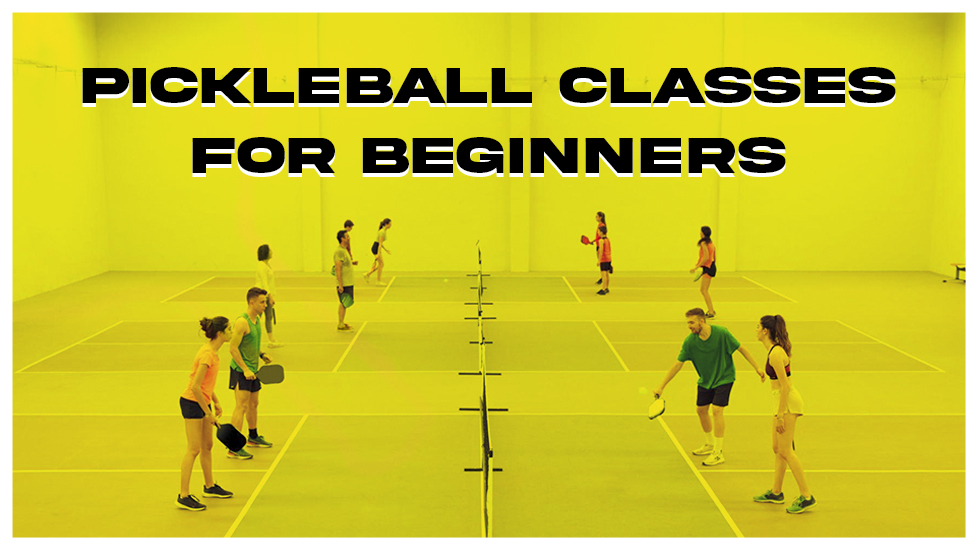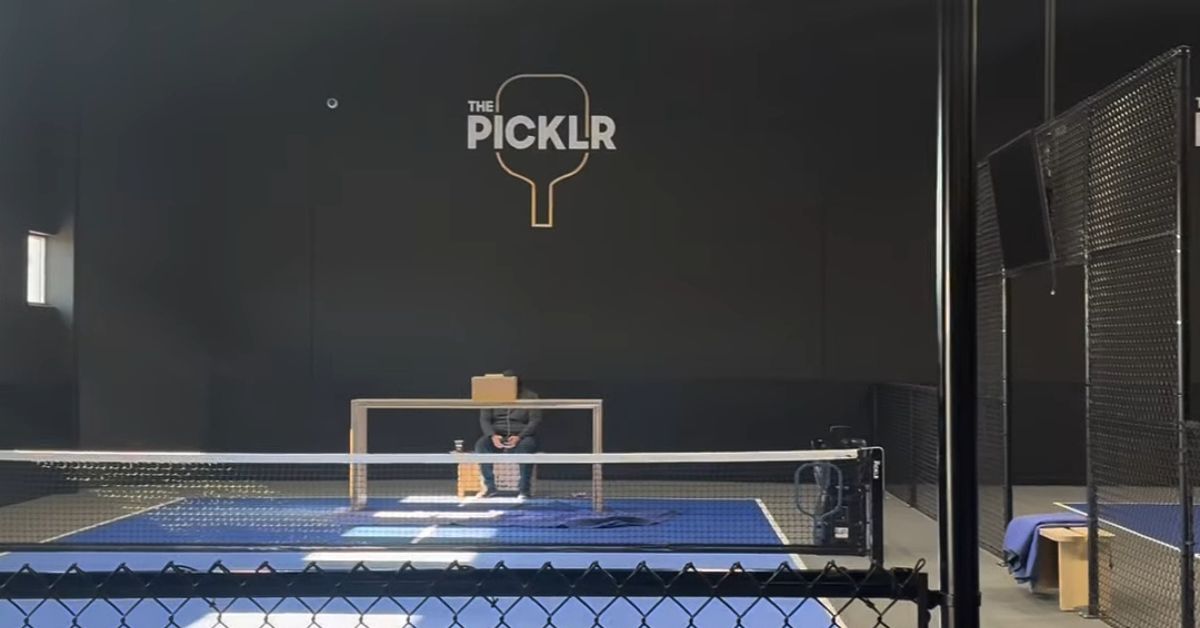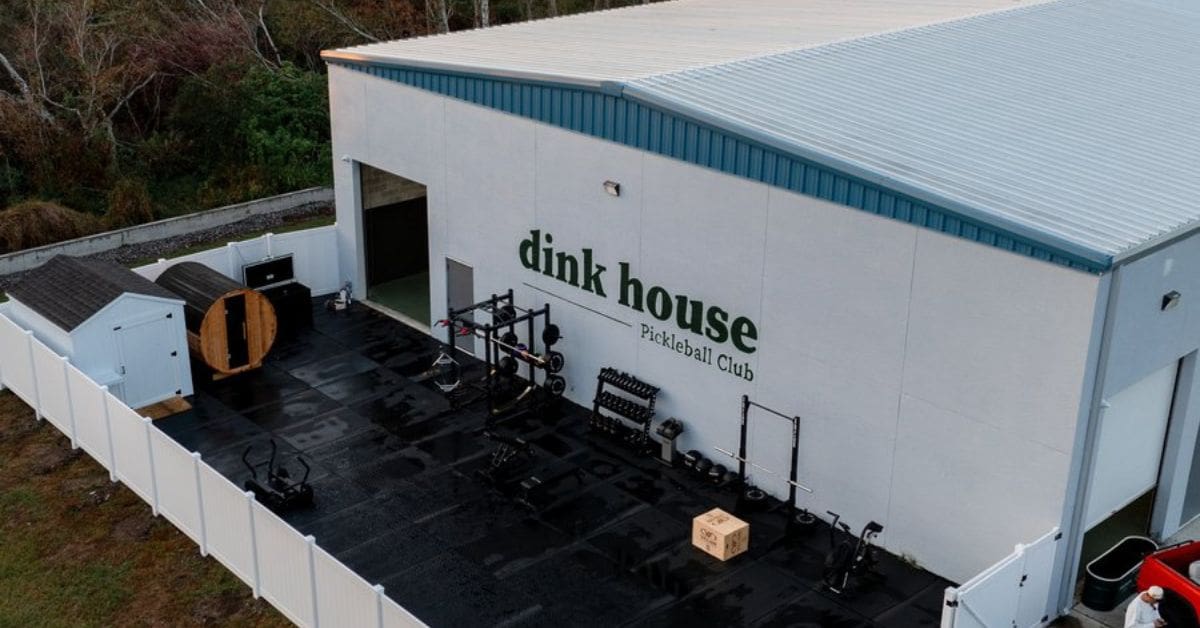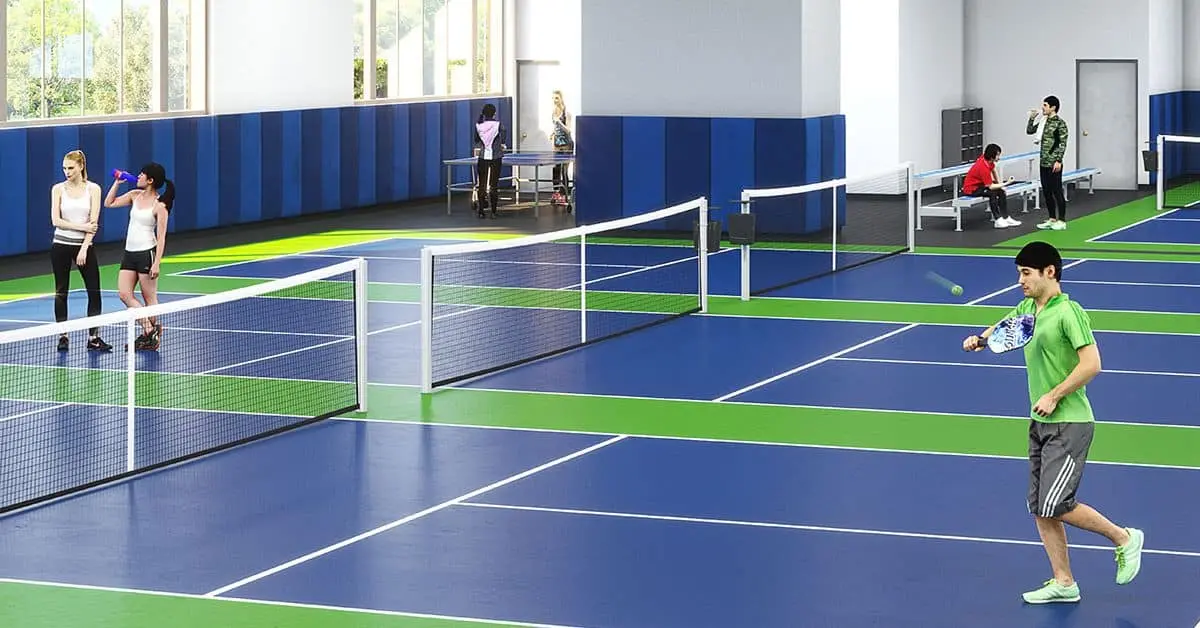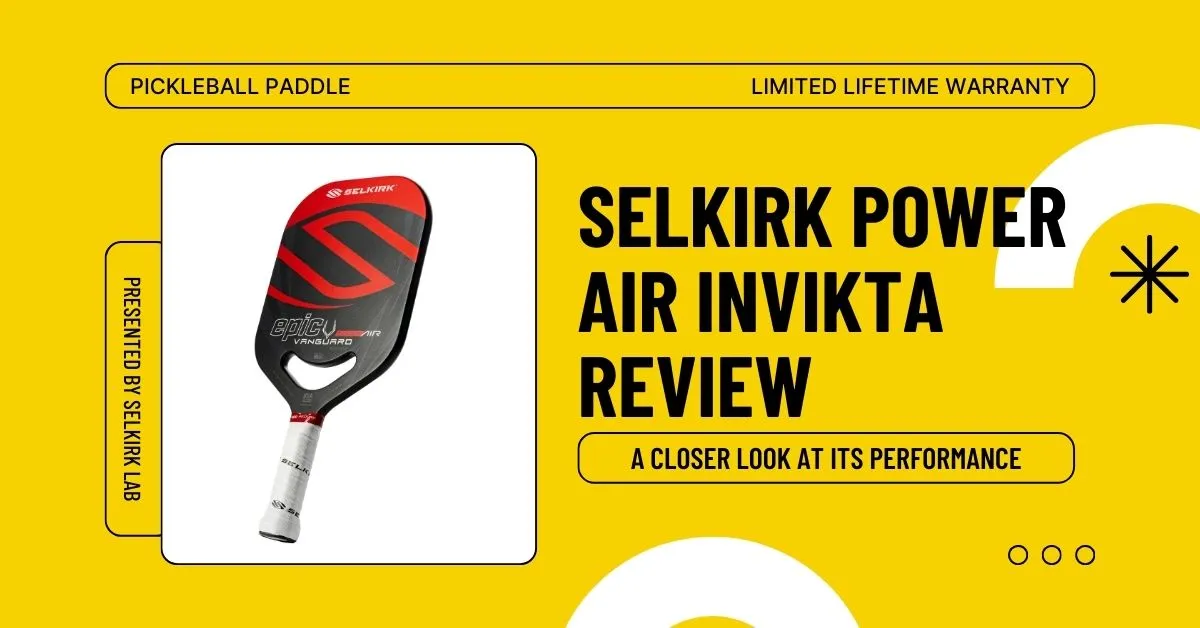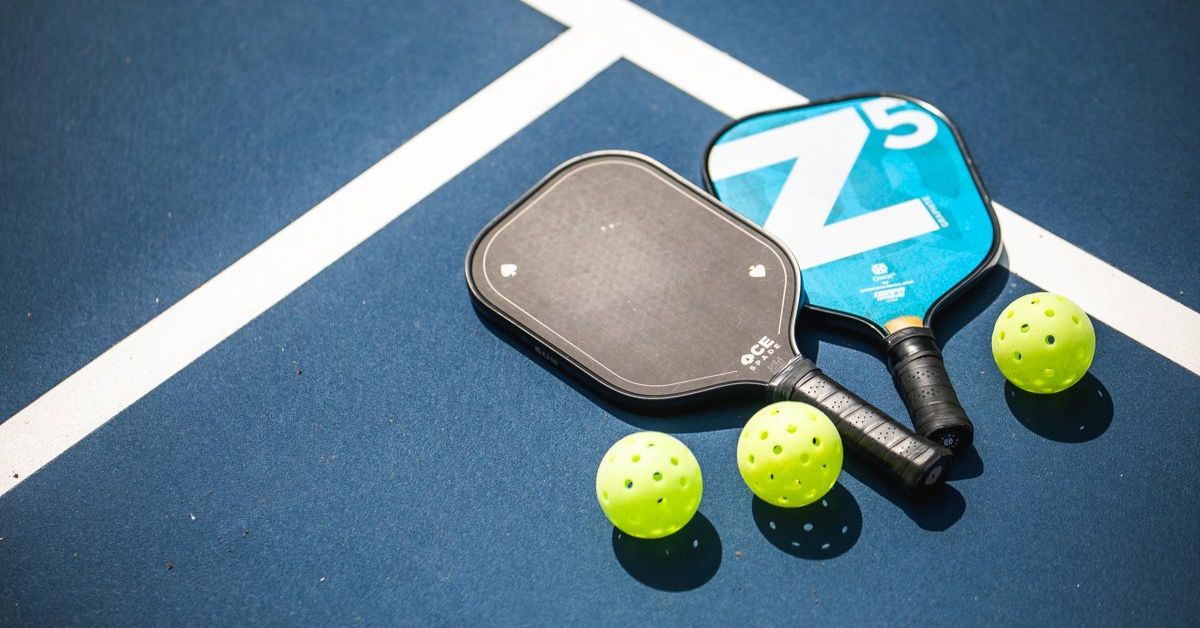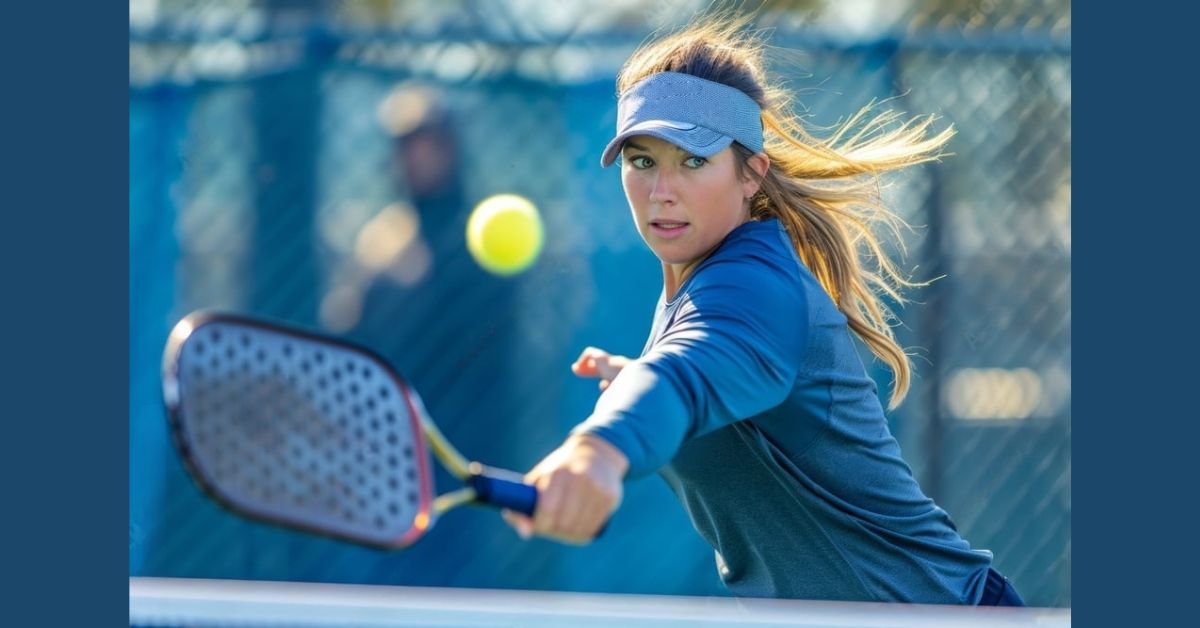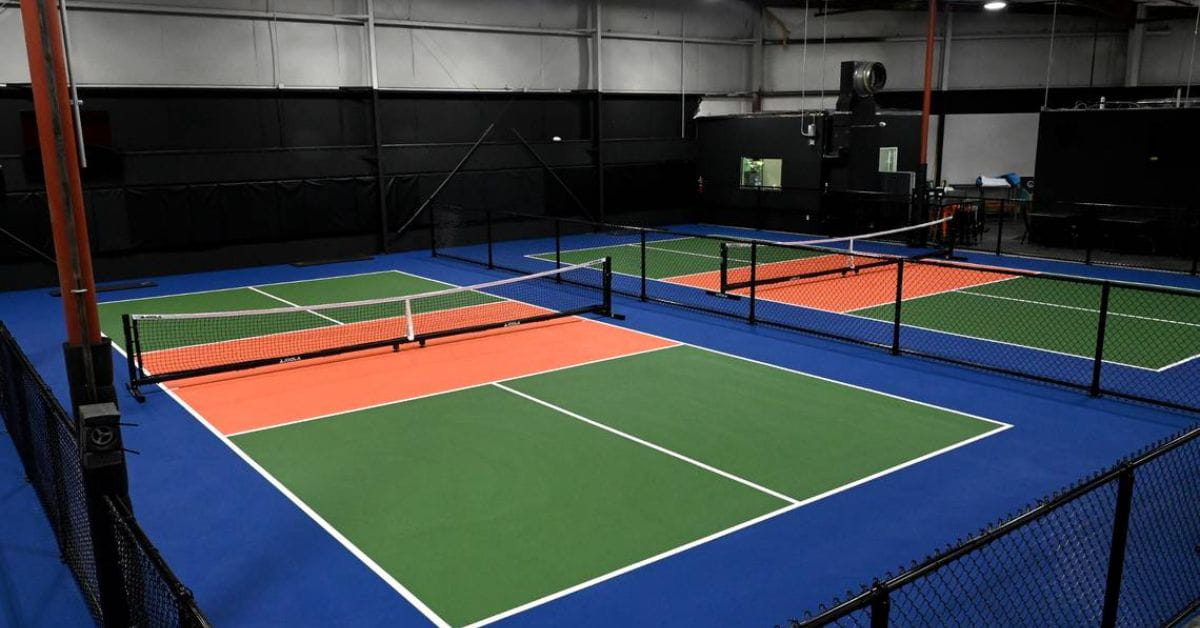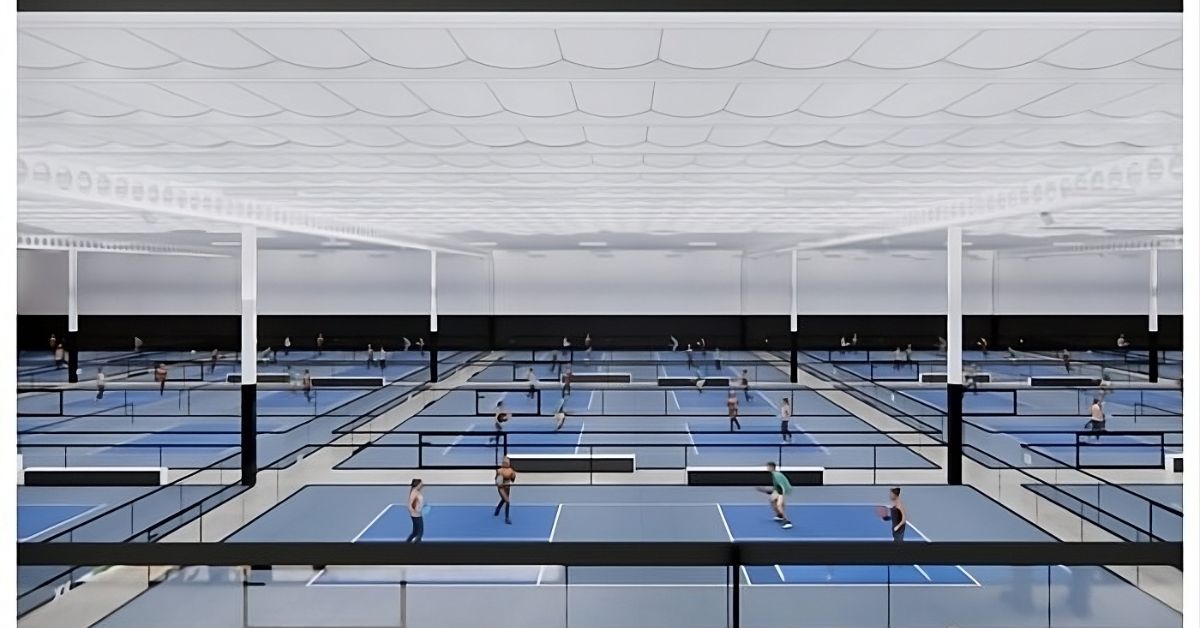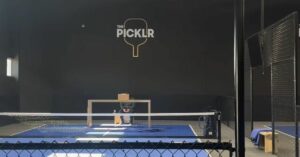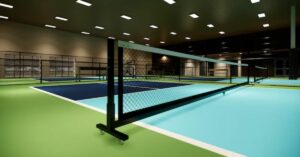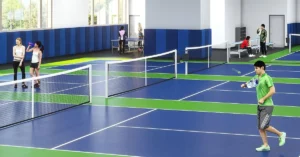Pickleball has seen unprecedented growth in the competitive sports scene in America over the past few years. The sport only witnesses a rise in supporters and players with time. With the growing number of players annually, the exponential attraction of new players is imminent.
Many new players and beginners have entered the pickleball community as of late. Naturally, they want to get accustomed to the rules and find a community that shares their passion for the sport. Pickleball for beginners can be simultaneously fun and transformative, which is essential to staying motivated in the long term.
We’ll delve into pickleball lessons for starters and novices today. This blog will cover how to choose coaches and courses, what mindset to take on the court, the skills you need to learn and develop, and other valuable tips.
Pickleball Classes
Pickleball classes are structured sessions centered around mastering the nuances of pickleball, and they offer a customized approach to skill development to individual players, whether they train alone or in tandem with a community. These classes are set in various settings, from clubs to specialized academies.
Club Classes
Many local clubs around the country organize pickleball lessons, creating a communal space for enthusiasts to learn and refine their skills. These sessions often cater to different skill levels, providing a supportive environment for players to progress. A club can have an internal coach to mentor you, or you can hire an external coach to watch your form.
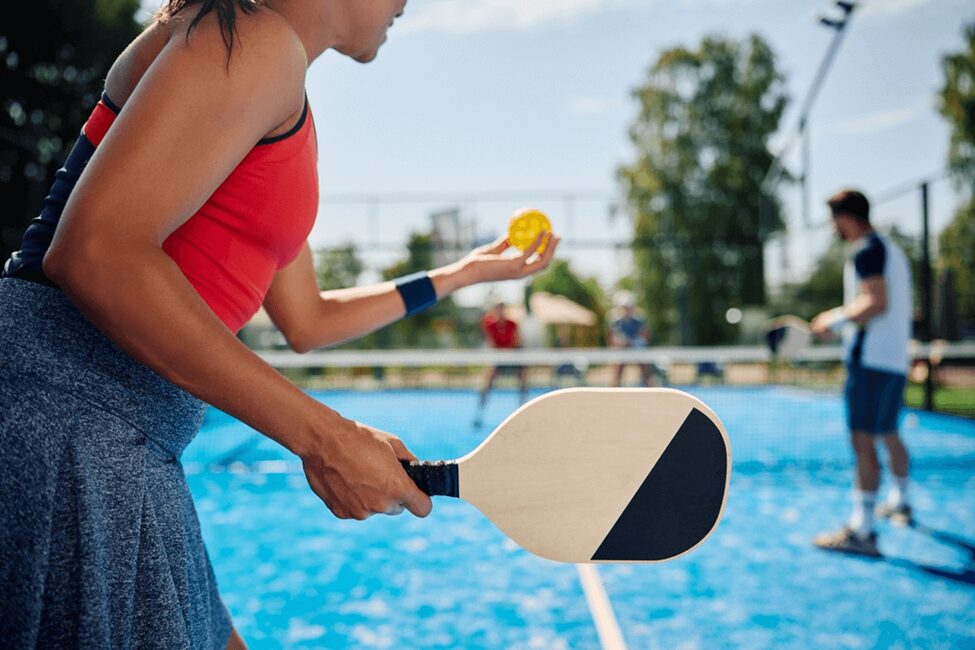
School Programs
Recently, some American schools have incorporated pickleball beginner classes into their sports curriculum, introducing students to the game and fostering an early interest. These programs promote physical activity and contribute to the widespread adoption of pickleball among early-age groups. However, their initiative will take some time, so this learning pathway is in its nascent stages.
Specialized Academies
Specialized pickleball academies offer in-depth coaching for those seeking a more intensive training experience. These academies often feature experienced instructors, structured curricula, and advanced facilities to enhance players’ proficiency. We would recommend academies and professional lessons for individuals who plan to compete in the future.
Significance of Pickleball Classes
Engaging in pickleball lessons can present a unique opportunity to grow your skill set. People have found that expert guidance, focused drills, and interactive learning contribute to a comprehensive understanding of the game. This is also predictable intuitively. Individualized attention toward your game
Participating in pickleball classes ensures a strategic and progressive approach to skill enhancement, whether you’re a starter or an experienced player looking to elevate your performance. Embracing the structured learning environment makes you watch your pickleball prowess as it reaches new heights.
Pickleball Beginner Lessons
Pickleball classes for beginners open the door to exciting challenges and skill development. Enrolling in a dedicated beginner lesson is a strategic step toward mastering the fundamentals of an exhilarating sport.
Beginner lessons provide a structured approach to learning the game. From understanding the rules and court dynamics to learning basic strokes, these lessons cater to newcomers, ensuring a solid foundation.
Learning from experts who are seasoned instructors can significantly accelerate your progress. You’ll more often than not find beginner lessons featuring coaches with extensive pickleball experience, offering valuable insights, personalized guidance, and constructive feedback to enhance your skills.
Beyond acquiring skills, beginner lessons create a social space for connecting with fellow enthusiasts. Improving and growing with others fosters a sense of camaraderie, turning the process into an enjoyable and collaborative experience.
Online Pickleball Classes or Lessons
In the digital age, the convenience of online learning has extended to pickleball. Online pickleball classes provide flexibility, allowing learners to access valuable resources conveniently.
Online platforms have a variety of learning materials and mediums, such as 1-on-1 on-call lessons for people who want assistance from an out-of-state coach, tutorials for visual learners to revisit lessons, guide blogs for in-depth knowledge, etc.
Accessibility like that allows beginners to learn with their chosen coach, learn at their own pace, and reinforce their understanding whenever needed.
Online pickleball beginner classes also allow you to learn at any time of the day. With saved lessons, you can schedule your training hours. This is helpful for people working during the day and playing pickleball after hours or on weekends.
Of course, getting acquainted with and learning from a global community of learners is also advantageous. Interacting with players from all around helps you understand different perspectives on the sport and adopt new styles and strategies, too, if you’re lucky.
YouTube Pickleball Tutorials
YouTube is a treasure trove of knowledge if you know where to look. Plenty of channels are dedicated to pickleball classes for beginners that feature instructions from experts. In our experience, some of these videos can be very helpful, especially if you’re a beginner getting acquainted with court rules.
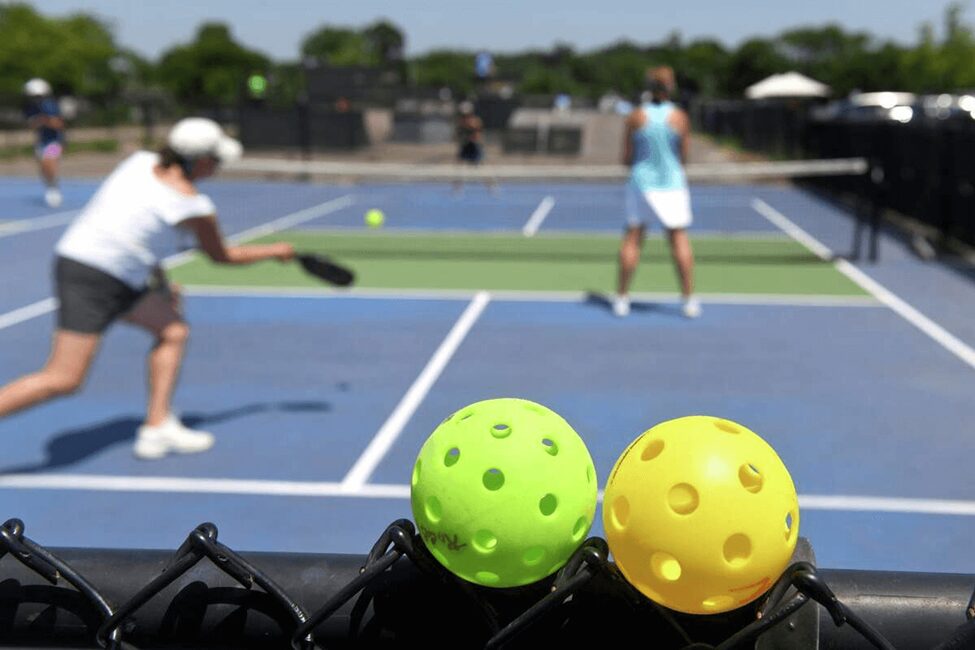
Why Use YouTube for Pickleball
On YouTube, seasoned pros talk about the correct form, special techniques, mobility through the court, and game strategies. It’s pretty cost-effective to get visual demonstrations of such instructions for free.
The application contains content on topics across the board. There is a tutorial for visual learners across all skills, from basic rules to advanced shots. You can watch and learn at your own pace in your schedule. All you’d need is a paddle and a ball, a nearby court site, and the willpower to start.
YouTube’s user interface is also not the wrong place to learn things. You can pause, save, and comment on the content you consume. With the right questions, you can have a thread of like-minded individuals discussing the content and sharing knowledge there.
You cannot start anywhere better than YouTube for a free online pickleball class. The vibrant pickleball community on YouTube shares lessons, tips, tutorials, and relevant news with you.
Pickleball Clinics
Attending a clinic at least once in your pickleball journey should be on your bucket list. They help you develop specific skills and offer an immersive learning environment with plenty of chances to foster a community. We discuss pickleball clinics in detail below.
What Are Pickleball Clinics?
Pickleball clinics include training sessions dedicated to specific skills and strategies. They are conducted by experienced professionals who focus on refining particular aspects of the game. Therefore, the training usually entails targeted instruction; for example, there could be a pickleball clinic to perfect backhand shots.
The targeted coaching and practice make it a haven for beginners. One of the pickleball tips for beginners here is to attend a clinic for a technique they are having trouble with. Unlike regular classes working on the entire gameplay, they zoom in on exact skills.
Familiar sights in a pickleball clinic are short, repeated drills with live demonstrations and free play. This allows students enough space to learn the said technique and employ it in their games. A clinic can prove very useful for players looking for an enhanced understanding of certain aspects of pickleball.
Pickleball Classes vs. Clinics
Both pickleball classes and clinics help players improve their game in different ways. They may serve distinct purposes in a player’s overall skill set, but a beginner will find both useful.
Classes for pickleball cater to a non-exhaustive list of the sport’s aspects and are great for you if you’re seeking a difference in your overall game. They account for a well-rounded skill set, from the most basic rules to court positioning, numerous shot techniques, and advanced strategies.
On the other hand, pickleball clinics target more specialized elements of the game. For players looking to enhance specific parts of their gameplay, the clinic offers focused training on aspects like drop shots, serving aces, volley strategies, avoiding specific faults, etc.
Your choice between the two depends mainly on your needs and expectations. Is your goal to improve your pace around the court? Go to classes. Do you want help avoiding the double-bounce fault? Pickleball clinics will help.
The choice between classes and clinics depends on individual goals and skill levels. Pickleball classes for beginners are more effective than clinics. In your early days as a player, focusing more on your overall game than specialized areas is better.

Whether you’re looking to master a specific shot, improve your overall game, or connect with fellow pickleball enthusiasts, both classes and clinics provide valuable opportunities for growth and enjoyment within the sport.
How To Play Pickleball For Beginners
First, beginners stepping onto the pickleball court should familiarize themselves with the playing area and equipment.
Pickleball is played on a court with dimensions similar to a badminton court. There is a net in the middle of the court with a height matching a tennis net.
A pickleball paddle, slightly larger than a ping pong paddle, is used to hit a plastic ball across this net. As you see, pickleball is an amalgamation of three paddle and net games. The pickleball ball is a plastic ball similar to a hollow whiffle ball but with more hollow holes on its surface.
Basic Rules
How to play pickleball as a beginner? It’s pretty straightforward. You play the game in singles or doubles. One team starts on their right serving curt and delivers an underhand serve, which sends the ball across the net to the opponent’s left serving court. The opponent must let the ball bounce before hitting it back.
Then, the serving team must also hit a non-volley shot. After this, both teams can rally the ball between each other without bounces. This rule is called the double-bounce rule; violating the rule leads to a fault.
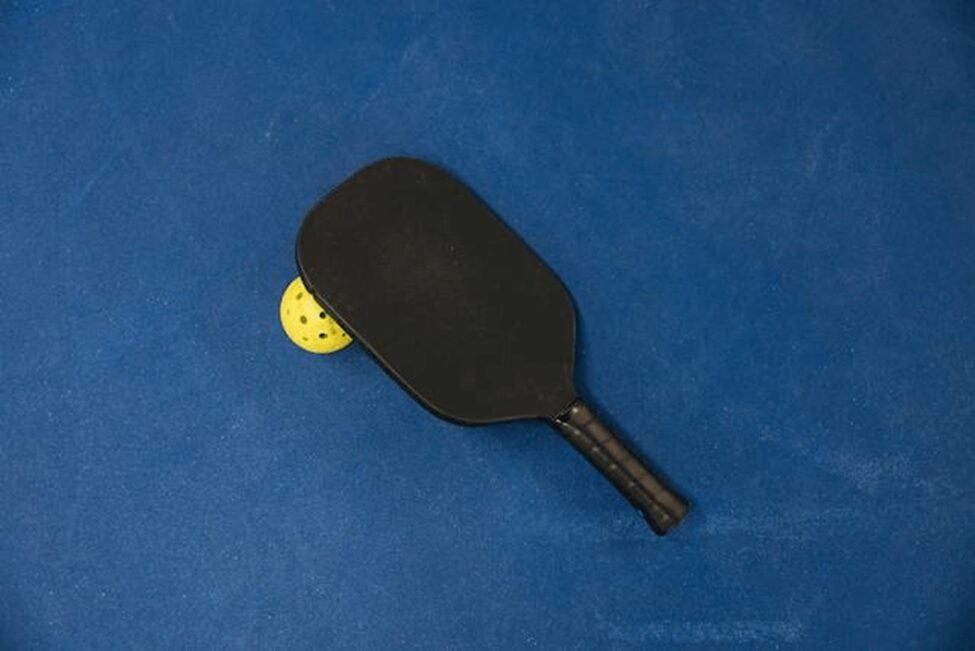
The game progresses as the teams rally the ball between themselves until one of the teams makes a fault. If the opposing team commits a fault, your team gets the point. If you commit a fault on your serve, you give an advantage to the opponent. Only the serving team scores a point during a serve.
Volleying (hitting the ball across the net without it bouncing is allowed) after a double bounce. Volleying may only happen outside the non-volley courts (see below).
A typical game ends when a team scores 11 points with at least a two-point difference.
Pickleball Tips for Beginners
- One of the fundamental skills for beginners is the dink shot. It is a soft hit with a controlled speed and power that crosses the net but lands close to the net, prompting the opponents to move forward. When you employ dink shots, you keep the ball relatively low and in the non-volley zone (where volleying is disallowed). It’s hard to return a ball from the non-volley zone, which increases your chances of scoring. A helpful pickleball tip for beginners from us is to learn the dink shot early. You’ll thank us later.
- Learn court positioning. You should know where to be at the rights section of the court at the right time. It defines most of your early strategy and proves helpful in your advanced stages. You can learn court positioning about your partner during doubles by anticipating your opponent’s shot through strategic shots that land where intended to have a superior game since the start.
- Playing pickleball as a beginner is also a test of your teamwork. Effective communication with your partner can make or break your game.
- Learn to be agile and fast in your movement. Pickleball is a dynamic game that will help you be at your physical prime to grow.
- Seek opportunities to learn from those better than you. Be curious, ask questions, and practice regularly.
What Are Pickleball Rules for Beginners
Understanding pickleball rules helps you in building your strategy. Here’s a list of the rules beginners of pickleball must know about.
Two Bounce Rule
As mentioned, the first two shots played after a serve must be after the ball bounces. After that, both teams can volley except from the non-volley zones in their respective courts.
Non-Volley Zone
Non-volley zones extend seven feet on both sides of the net, and players are prohibited to volley the ball in these zones. Volleying in the non-volley zones is a fault.
Service Faults
Common service faults are serving outside the serving court, not serving to the diagonally opposite serving court, and serving with your hand above the waistline.
Faults
Any act that is a violation of the rules is a fault.
Pickleball 101 Class
To help familiarize you with the game, here’s a pickleball 101 class (of sorts) as a fundamental stepping stone. Everything you must know as a beginner of this dynamic sport, we are providing a structured example of a structured course for skill development and understanding the game’s core principles.
Get Used To The Dynamics
Whether you’re just starting or have played causally before, you need a formal introduction to the game, as brief as it might be. Pickleball is a paddle sport made of other paddle sports, so it is essential to understand its court dimensions and fundamental rules and be familiar with the equipment.
Live Play
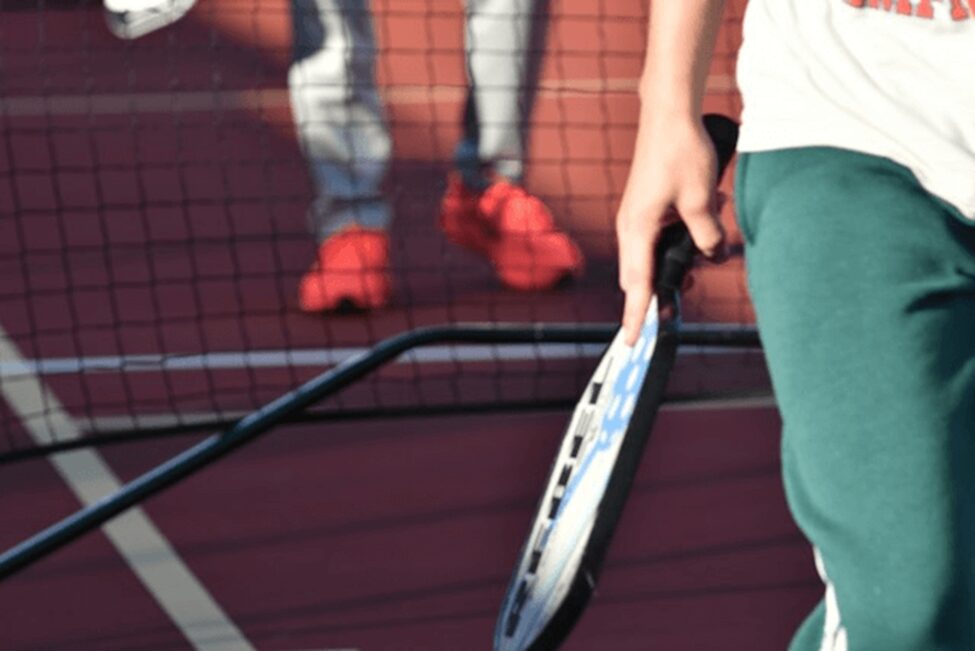
The classroom transitions seamlessly to the court, offering a hands-on experience crucial for beginners. As a pickleball beginner, learn the proper techniques of holding paddles, executing serves, and moving through the court.
Indulging in live plays during introductory classes forms a dynamic learning environment critical for a game as dynamic as this. Beginner classes are what build your core muscle memory.
Learn To Keep Score
Keeping score in pickleball, whether in singles or doubles, follows a straightforward yet strategic approach. In singles play, only the serving side can score points. Each successful serve results in a point.
Doubles scoring adds an extra layer of complexity. Similar to singles, only the serving side can score, but each player on the serving team has the opportunity to serve before giving up the serve to the opponents. This means a team can do two faults before relinquishing their serve. A switch of the serving team is called a side-out.
Strategic Court Positioning
A pickleball tip for beginners is to learn strategic court positions as soon as possible. Pickleball is not a game that only tests the power and speed with which you land the ball in your opponent’s court. It requires insight into the opponent’s mind, positioning, and clever decision-making to allow yourself an advantage.
Fostering Community
A good pickleball 101 class is educational and helps its students bond through their mutual interest in the sport. Learning anything new in life requires motivation to carry through in the long run despite disappointments and stagnant growth, which is inevitable.
Your power through those times with an inspiring community. The shared enthusiasm for learning and playing helps you associate the sport with a positive and enjoyable atmosphere.
Choosing A Pickleball Coach
Your first impressions of the sport heavily influence your game strategy. Selecting the right pickleball coach is pivotal in refining your skills and elevating your game.
As the popularity of pickleball continues to surge, the demand for qualified coaches has followed suit. Here’s a guide to help you navigate the process of choosing a pickleball coach tailored to your needs.
Credentials
An excellent place to start is by checking the coach’s credentials and conducting a pickleball class for beginners. A person with years of experience in playing and teaching is the ideal candidate for you. A professional with certificates, competition titles, and affiliations with the community is an excellent place to start.
Teaching And Learning Style
A mentor-mentee dynamic that compliments each other’s teaching and learning style creates excellent synergy and chemistry. Each teacher has a different teaching style, just as every student has a unique way of learning. To choose the ideal teacher for ourself, you need to assess your learning needs and find someone who understands and resonates with your goals.
Communication Skills
A complimenting learning and teaching style cannot sustain synergy between students and their coach. Both parties have to communicate effectively with each other to create a positive learning environment. Think about different coaches and their ability to articulate concepts and instructions.
Personalized Attention
Individual attention to your form, strategy, and overall game is critical at the start. Pickleball beginner class coaches must provide target feedback and tailored training to keep your personalized training effective. An instructor who understands and can point out your strengths and weaknesses and help you meet your goals is the one you should go for.
Reviews and References
With the growth of pickleball, plenty of people try to take advantage of eager beginners and exploit them for monetary gain. Check the reviews of an instructor, talk to people they have coached, and then make a judgment call.
We also suggest that before venturing into your research for coaches, talk to anyone you may be acquainted with in the pickleball community, especially if they are advanced players. Odds are they have been in your situation before and can recommend someone from their first-hand experience.
Accessibility
A coach with a flexible schedule who can give you consistent sessions will contribute to steady progress. Consider if they have time to provide you with sessions. Check if they are in your area, too. If they’re not, are you comfortable learning online? Answer some basic questions to sift out applicable candidates.
Approach To Pickleball
A passionate coach is likelier to instill enthusiasm in their students during pickleball classes. Seek someone genuinely excited about pickleball, dedicated to fostering a love for the sport, and motivated to help players reach their full potential.
FAQ’s
Pickleball has gained immense popularity across various age groups. Whether you’re a beginner or a seasoned player, understanding the fundamentals is critical to enjoying this dynamic game. Here are some frequently asked questions to guide you on your pickleball journey:
A pickleball beginner is anyone new to the sport and has yet to learn the basic rules and strategies. They don’t necessarily have to be people who have never set foot on a pickleball court. The defining characteristic is someone willing to grow in the sport.

A group of families in the Bainbridge Island near Seattle first devised Pickleball. Its basis is grounded on social interaction and accessibility through all ages. Despite being an all-encompassing sport of the mind and the body, it is still a low-impact sport compared to tennis and basketball. This makes it a suitable sport for seniors who play it to stay active mentally and physically alongside engaging socially.
The best way to learn pickleball is through taking pickleball classes for beginners. These don’t have to be paid subscriptions. You can watch tutorials by experts on free streaming platforms like YouTube. Structured lessons, practice, and regular playing. Consider taking in-person classes or joining clubs. As a beginner, focus on understanding the rules, learning basic techniques, and developing a mindset for consistent growth. Local clubs, recreation centers, or online platforms offer beginner classes.
To excel in pickleball as a beginner, focus on fundamental skills such as court positioning and paddle control. Practice your serve, return correctly, and build muscle memory for shots. Set out time from your daily routine to play for consistent practice.
A pickleball tip for beginners we always suggest is to reflect on your performance, strive to grow, and practice regularly. Join clubs, online forums, seminars, and clinics, and learn from experienced players. Growth is consistent, even if it’s not apparent. Just trust the process, strive for improvements, and work on your weaknesses to get the desired results.
Pickleball For Beginners
Whether you’re just starting or looking to enhance your skills, pickleball offers a diverse and engaging experience. Embrace the learning process, stay open to new techniques, and, most importantly, have fun on the court.
That’s all from us today! Are you a beginner? How are you improving? Let us know of your learning trajectory in the comments below.

